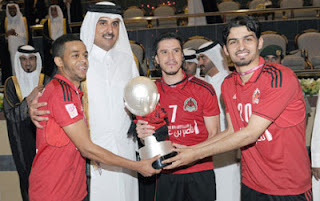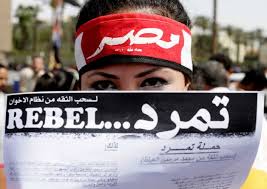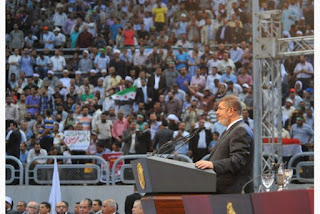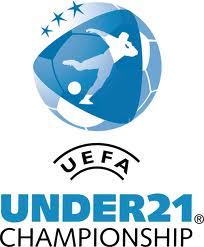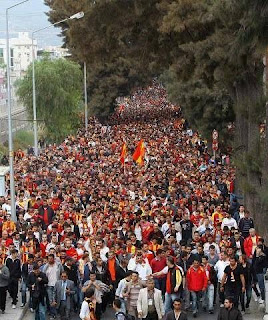Planned mass protests in Egypt echo Cairo’s Tahrir Square uprising

Ultras play cat and mouse By James M. Dorsey Egyptian President Mohammed Morsi and militant, street battle-hardened soccer fans, in a replay of the run-up to mass protests two years ago that ousted Hosni Mubarak are positioning themselves for planned watershed mass demonstrations for and against the government this weekend. In a statement almost identical to the one they issued on January 24, 2011, the eve of 18 days of protests that toppled Mr. Mubarak, Ultras Ahlawy, the militant support group of crowned Cairo club Al Ahli SC that played a key role in the former president’s overthrow, said this week that as an organization it would not participate in the demonstrations on the anniversary of Mr. Morsi’s ascendancy as Egypt’s first freely elected president, but that its members were free to do so. The statement insisted that that Ultras Ahlawy was a group of soccer fans “that has nothing to do with politics.” It said the group had decided “not to get involved in

